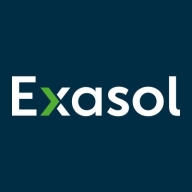

Teradata and Exasol Data Warehouse both compete in the data warehousing category. Exasol has the advantage due to its advanced analytical capabilities and performance enhancements.
Features:Teradata stands out with scalability, seamless integration with enterprise applications, and robust customer support. Exasol offers excellent performance with rapid query processing, in-memory computing, and advanced analytics.
Room for Improvement:Teradata could enhance its analytics performance and query speed. Additionally, improving its in-memory capabilities would be beneficial. Exasol could work on simplifying its deployment process, enhancing user-friendliness, and expanding its customer support.
Ease of Deployment and Customer Service:Teradata provides streamlined deployment and extensive support resources, allowing efficient onboarding. Exasol offers high customization flexibility, which benefits specific organizational needs but may be more labor-intensive during initial setup.
Pricing and ROI:Teradata often provides a more cost-effective initial setup with favorable pricing models, ensuring a solid return on investment through its support and integration services. Exasol may have a higher initial cost yet delivers significant ROI through performance gains and reduced operational expenses over time.
| Product | Market Share (%) |
|---|---|
| Teradata | 4.2% |
| Exasol Data Warehouse | 1.3% |
| Other | 94.5% |


| Company Size | Count |
|---|---|
| Small Business | 1 |
| Midsize Enterprise | 1 |
| Large Enterprise | 6 |
| Company Size | Count |
|---|---|
| Small Business | 26 |
| Midsize Enterprise | 12 |
| Large Enterprise | 50 |
Exasol is a high-performance data warehouse solution that accelerates BI and reporting features. Its speed, stability, and self-tuning queries make it valuable, and it doesn't require a database administrator. It's a backend database for Tableau dashboards, resulting in faster report loading times and increased efficiency in querying data.
Exasol's high performance allows users to connect insights and fire queries instead of looking at cached dashboards. It has impressive aggregation capabilities that help calculate metrics on the fly based on user-selected filters.
Teradata is a powerful tool for handling substantial data volumes with its parallel processing architecture, supporting both cloud and on-premise environments efficiently. It offers impressive capabilities for fast query processing, data integration, and real-time reporting, making it suitable for diverse industrial applications.
Known for its robust parallel processing capabilities, Teradata effectively manages large datasets and provides adaptable deployment across cloud and on-premise setups. It enhances performance and scalability with features like advanced query tuning, workload management, and strong security. Users appreciate its ease of use and automation features which support real-time data reporting. The optimizer and intelligent partitioning help improve query speed and efficiency, while multi-temperature data management optimizes data handling.
What are the key features of Teradata?In the finance, retail, and government sectors, Teradata is employed for data warehousing, business intelligence, and analytical processing. It handles vast datasets for activities like customer behavior modeling and enterprise data integration. Supporting efficient reporting and analytics, Teradata enhances data storage and processing, whether deployed on-premise or on cloud platforms.
We monitor all Relational Databases Tools reviews to prevent fraudulent reviews and keep review quality high. We do not post reviews by company employees or direct competitors. We validate each review for authenticity via cross-reference with LinkedIn, and personal follow-up with the reviewer when necessary.